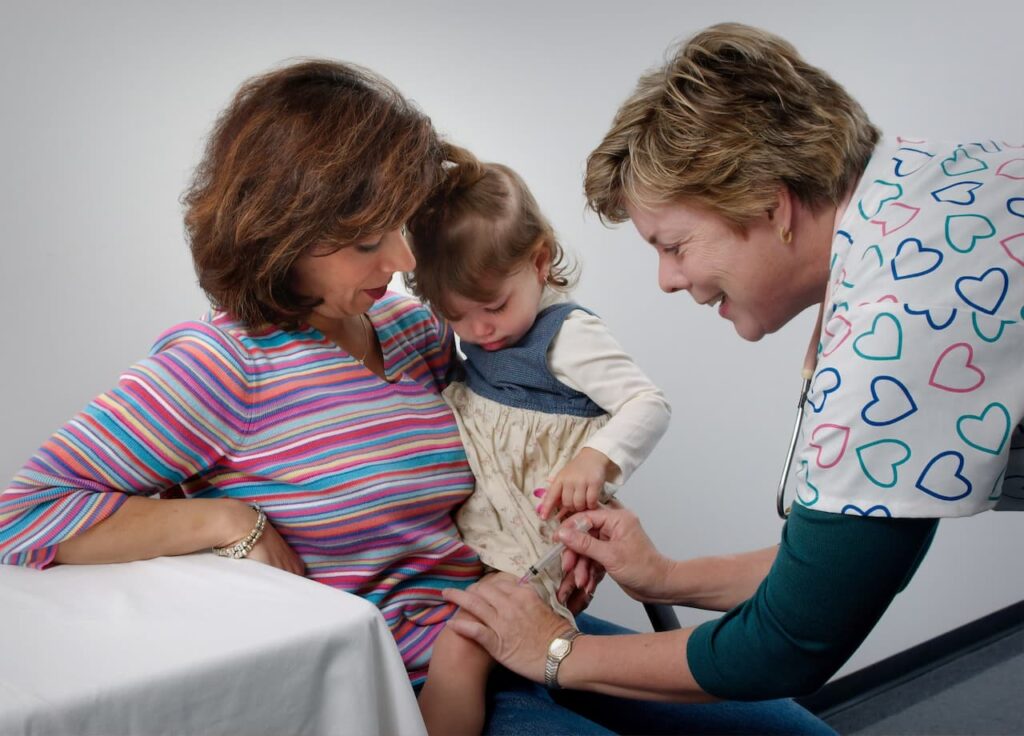Fetal Alcohol Spectrum Disorders (FASDs)
Fetal alcohol syndrome (FAS) is an irreversible illness that can result from even one drink consumed during pregnancy. Maternal alcohol exposure is associated with a higher risk of having a child who is born with developmental delays or disabilities.
Of the set of illnesses known as fetal alcohol spectrum disorders, fetal alcohol syndrome is the most severe (FASDs).
What is fetal alcohol syndrome (FAS)?
When a pregnant woman consumes alcohol, the fetus (growing infant) might suffer from fetal alcohol syndrome (FAS). A syndrome is a collection of signs and symptoms that manifest as a whole and are caused by the same disease or abnormality.
Fetal alcohol spectrum disorders include fetal alcohol syndrome as the most severe kind (FASDs). FAS is a genetic disorder with no treatment options. If you don’t consume alcohol when you’re expecting, you won’t have to worry about this.
Alcohol use of any kind during pregnancy, even in moderation, may be harmful to the unborn child.
FASD symptoms
Fetal alcohol syndrome symptoms are quite variable. Some people may have none of them, while others may have them all. Problems with FAS can affect both your mind and body.
Distinct changes in facial and limb structure, as well as slowed overall growth, are possible in a person with FAS.
Lifelong mental and emotional difficulties can also have far-reaching consequences for a person’s relationships, productivity, and success in school and the workplace.

Infants
Fetal alcohol syndrome in babies can cause a variety of symptoms, including:
- Abnormalities in the face, such as a thin top lip, tiny eyes, and a lack of a ridge between the nose and upper lip.
- Light in the body.
- Low in stature.
- Trouble sleeping and choking.
- Constant headaches due to a small noggin.
- Disabilities in either sight or hearing.
- From infancy to and beyond
Over time, those affected by fetal alcohol syndrome may experience the following symptoms:
- Language and speech delays.
- Inability to focus and a limited attention span.
- Negative ability to discriminate between the real world and one’s imagination.
- Hyperactivity.
- Problems learning.
- Low IQ.
- A lack of coordination.
- Not very good at thinking things through.
- The student’s academic achievement was poor.
- Memory lapses that don’t even last a few minutes.
- Autism Spectrum Disorder Diagnosis
Diagnosis of FASDs
The diagnosis of fetal alcohol syndrome is not always straightforward. Pregnant women may not give an accurate account of their alcohol consumption because there is no definitive test for FAS, and they may also be reluctant to disclose any possible risks to their unborn child.
Most of the time, pediatricians can diagnose FAS by looking at a child’s stature and seeing the emergence of a few diagnostic symptoms during infancy, including:
- Prenatal alcohol exposure in the mother’s medical history.
- Abnormal facial traits include a thin upper lip, tiny eyes, and a smooth transition from the nose to the top lip.
- Infants and young children typically remain small in stature.
- Problems with emotions and behavior, such as impulsivity, hyperactivity, and poor decision-making.

Treatment of FASDs
The effects of treating FASDs are long-lasting. Early intervention therapy services have been shown to help a child’s development despite the fact that there is currently no cure for FASDs.
Medication to alleviate certain symptoms, behavioral and educational counseling, parent training, and other non-traditional methods are all viable solutions. There isn’t a magic bullet that works for every kid.
A good treatment plan will incorporate regular check-ins, updates, and course corrections. It’s important to note that protective factors can mitigate the negative outcomes of FASDs and pave the way for persons with these disorders to realize their full potential.
Influences that reduce risk include:
- When a child is less than 6 when the diagnosis is made
- School years spent in a household that is loving, supportive, and steady
- A lack of aggression
- Participation in social service programs and special education
Causes of FASDs
Consuming alcoholic beverages when pregnant. If you drink while pregnant, the alcohol will make its way to the fetus through your blood.
Because fetal metabolism of alcohol is slower than adult metabolism, pregnant women who drink alcohol end up with greater blood alcohol concentrations than they would otherwise.
Consuming alcoholic beverages during pregnancy decreases the amount of oxygen and nutrients reaching your baby. Birth defects and brain damage can result from prenatal alcohol exposure.
An expectant mother’s risk to her unborn baby increases proportionally with the amount of alcohol she consumes. But keep in mind that drinking at all puts your unborn child in danger.

Even before you realize you’re pregnant, your baby’s brain, heart, and blood vessels begin to form.
Alcohol use during the first trimester of pregnancy has been linked to developmental delays in the baby’s face, heart, and other organs (including the bones) and the central nervous system.
This is a crucial time for the development of various features of the fetus. Yet, the danger is always there, regardless of when pregnancy occurs.
FASD prevention
Fetal alcohol syndrome is absolutely avoidable, according to experts, so long as pregnant women abstain from alcohol consumption. The following recommendations can reduce the risk of fetal alcohol syndrome:
- If you want to conceive, it’s best to abstain from alcohol. Stop drinking as soon as you find out you’re pregnant, or even if you’re only trying to conceive. The sooner a pregnant woman stops drinking, the healthier for her and her unborn child.
- Be sober throughout your entire pregnancy. For children whose mothers abstain from alcohol consumption throughout pregnancy, the effects of fetal alcohol syndrome are eliminated.
- If you’re sexually active and unprotected, you may want to think about giving up alcohol while you’re in your reproductive years. Due to the high rate of unintended births, it is important to take precautions as early as possible.
- Do not get pregnant if you have an alcohol problem. If you need help determining the extent of your alcoholism or crafting a strategy for treating it, seek the services of a trained expert.
What should I do if I suspect FASDs in my child?
The spotting of kids with FASDs is supported by resources in each province and territory. See a medical professional for an evaluation or referral if you suspect your kid has FASDs.
A doctor will ask questions about the following to help determine if your kid has FASDs:
- Whether or not you drank during pregnancy, how much, how well your child is performing in school, whether he or she has any learning difficulties, and how the youngster acts in social situations.
- Prenatal alcohol exposure may not necessarily result in complete FASDs in offspring. But, issues may persist.
Conclusion
Fetal Alcohol Spectrum Disorders (FASDs) are a set of developmental disabilities that can result from maternal alcohol consumption during pregnancy.
Fetal Alcohol Syndrome (FAS) is the most severe kind of FASD and can cause significant mental, physical, and emotional problems for the child throughout their life.
The symptoms of FASDs can be variable and may include changes in facial and limb structure, growth delays, intellectual disabilities, behavioral and emotional issues, and memory problems.
Diagnosing FASDs can be challenging, but early intervention therapies can help manage the symptoms and prevent further complications. FASDs are entirely preventable, and pregnant women can avoid the risk by abstaining from alcohol use during pregnancy.
It’s crucial to spread awareness about FASDs and prevent maternal alcohol use to avoid putting the unborn child’s health at risk.




